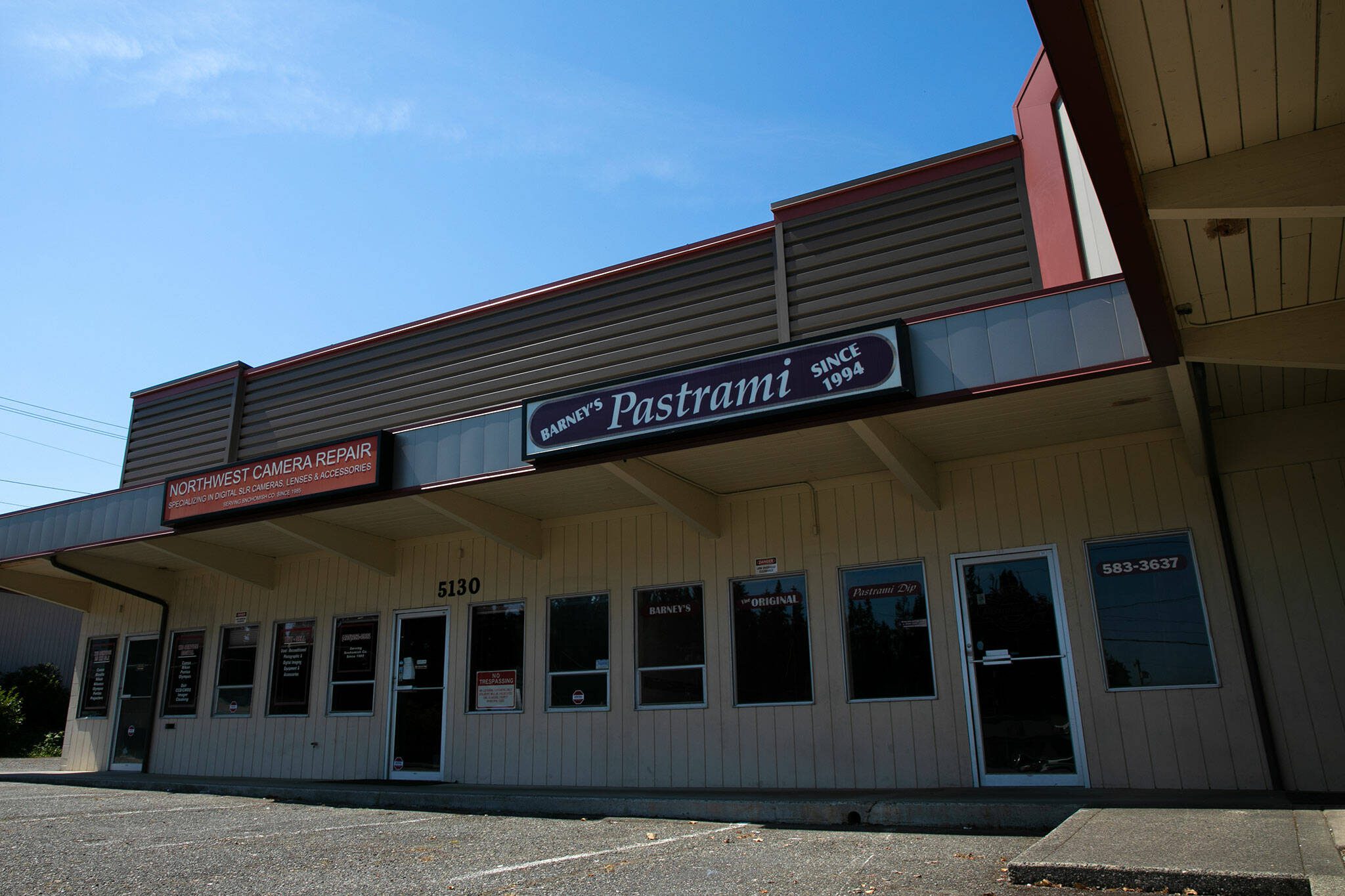EVERETT — Fifteen years ago, John Koch was using heroin daily. Then he began a medication treatment program for opioid use disorder.
“I believe it’s what helped keep me alive,” he said.
Koch is now the community and public relations director for Community Medical Services. The opioid use disorder clinic is set to open in the next six to nine months at 5130 Evergreen Way in Everett. It’s the former home of Northwest Camera Repair and Barney’s Pastrami Dip, which shut down in 2021.
“It’s a done deal,” Koch texted Tuesday. “We’re in a 10-year lease.”
Koch said he expects the clinic to serve about 400 people overall, with fewer than 80 patients showing up daily. He chose the clinic’s location, the organization’s first in the state, because it’s accessible.
“We don’t want to be hidden in a medical plaza,” Koch said. “We want to be more like medical retail, where people can see us, have exposure to us, and know that there’s an option right there off of Evergreen Way for them to get treatment on demand.”
The clinic would provide low doses of three FDA-approved medications — buprenorphine, naltrexone and methadone — to relieve withdrawal symptoms and cravings. Patients would also have access to counseling, peer support, doctors visits and psychiatric appointments.
In 2009, researchers from the University of Oslo in Norway found the increased risk of dying from an overdose after four weeks of medication-free inpatient treatment “is so dramatic that preventative measures should be taken.”
Koch said treatment with medication is the gold standard for opioid use disorder and the most effective way to stabilize people addicted to fentanyl. Koch tried other treatments to overcome heroin, he said, but they increased the chances he would overdose.
Koch said Community Medical Services, based in Phoenix with over 40 clinics nationwide, decided to expand to Washington because the state “needs some help.”
In 2021, synthetic opioids like fentanyl became the primary cause of drug-related deaths in the state, according to data from the Addictions, Drug and Alcohol Institute at the University of Washington.
While deaths from commonly prescribed opioids and heroin have declined, synthetic opioid-related deaths have spiked to almost 90% of all opioid deaths in the state. Ten years ago, they accounted for less than 25%.
According to the Snohomish County Community Health Assessment published in June, opioid overdose deaths have nearly doubled and are higher than the overdose death rate statewide. The county has also surpassed the national rate. In Everett alone, the police department reported 95 drug overdoses from preliminary data collected before June.
“We found that Everett was one of those cities that had high overdose rates,” Koch said.
Mayor Cassie Franklin said the almost 500% increase in overdoses since last year is mostly due to fentanyl, according to past Herald reporting.
Andrew Saxon is the director of the Center of Excellence in Substance Abuse Treatment and Education at the University of Washington. He said fentanyl has made the opioid crisis in Washington “very severe” because it’s potent, cheap and easy to transport.
“It causes a really extreme physical dependence,” he said in an interview Tuesday.
In recent months, the public has shown increasing concern at Everett City Council meetings about homelessness and public drug use, especially in light of the council’s vote to condemn the Waits Motel.
Dennis Wagner, president of Downtown Dennis Real Estate, told the council he often sees people get high at the entrance of the QFC on Broadway.
“We’ve got to do something, it’s crumbling,” he said at a City Council meeting last month.
The city has proposed solutions like “no sit” zones, homeless shelters and substance abuse treatment centers with mixed reactions from the public — including pushback against turning Hope Church into a shelter, a half-mile north on Evergreen from the new clinic.
City Council member Paula Rhyne said she wants to see more resources allocated to treatment clinics like the one at Denney Juvenile Justice Center, but the city needs more help.
“Everett alone, we can’t do it,” she said Friday.
Christine Timko researches substance use disorders and their treatment at the VA Palo Alto health care system and Stanford University School of Medicine. She said many people aren’t getting the help they need.
“The main issues are increasing access to treatment, getting people into treatment so they’re on those medications and getting people to stay on those medications,” she said.
Timko said increasing access to treatment should be the city’s first priority in helping to solve the opioid crisis.
“There are just not enough treatment facilities,” she said.
Current medication providers for opioid use disorder in Everett include Therapeutic Health Services and Ideal Option, which has a location on Hoyt Avenue about a half-mile north of the proposed clinic.
In an emailed statement, city spokesperson Simone Tarver said Franklin “definitely agrees that we need more behavioral health services available in our area.”
Koch said he knows the new clinic may raise concerns.
“We will not have lines of people outside of our building,” he said. “We will be treating our patients and the community with dignity and respect.”
The clinic’s neighbors include a glass and vape shop, a Punjab market and an accounting firm. Assistance League of Everett sits across the street. Bonnie Yoseph, board president of the Assistance League, declined to comment on plans for the clinic.
Saxon said people’s concerns about increasing treatment clinics may be valid, but access to medication is a matter of life or death.
“This medication saves lives,” he said.
Sydney Jackson: 425-339-3430; sydney.jackson@heraldnet.com; Twitter: @_sydneyajackson.
Talk to us
> Give us your news tips.
> Send us a letter to the editor.
> More Herald contact information.

























